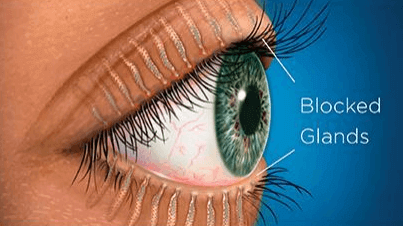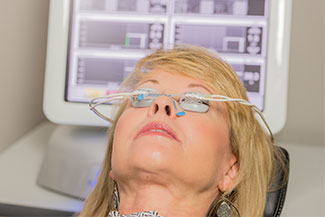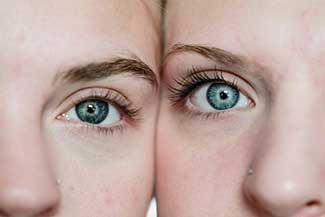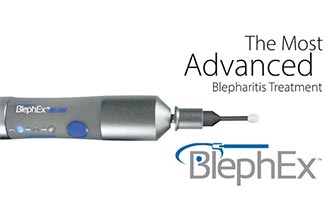Meibomian Gland Disease
Dry eye is a common ocular condition that can occur for a variety of reasons. A leading cause of dry eye, however, is Meibomian Gland Dysfunction (MGD); it affects the essential oil layer of the eye’s tear film, causing tears to evaporate too quickly.
In fact, more than 85% of patients with dry eye symptoms are diagnosed with Meibomian Gland Dysfunction. MGD is chronic condition which, when left untreated, can worsen overtime.
For optimal treatment you first need to be properly diagnosed. Meibography is a non-invasive screening tool that accurately diagnoses MGD and enables Dr. Schwartz to provide effective treatment to relieve dry eye symptoms.

What Is Meibomian Gland Dysfunction (MGD)?
Meibomian glands are located in both your upper and lower eyelids, where they produce complex oily fluid that stabilizes the tear film and slows the evaporation of your tears. This allows the tears to keep your cornea well-lubricated for comfortable and clear vision.
When the meibomian glands are either blocked or don’t function optimally, the lipid (fatty) layer of your tear film isn’t rich enough to keep your eyes moist. This causes rapid evaporation of tears and results in friction between the cornea and eyelids.
Causes & Symptoms of Meibomian Gland Dysfunction (MGD)
Causes of Meibomian Gland Dysfunction (MGD):
MGD occurs when the Meibomian glands, located in the eyelids, become blocked or dysfunctional. These glands are responsible for secreting oils that prevent the evaporation of the eye’s tear film. Factors contributing to MGD include aging, hormonal changes, use of certain medications, and conditions like rosacea. Environmental factors such as prolonged screen time and exposure to air pollution can also exacerbate the condition. Additionally, decreased blinking rates, often due to extended periods of staring at screens, can impair the distribution of oils across the tear film, further contributing to MGD. When these glands are not functioning properly, it leads to an unstable tear film and dry eye symptoms.
Symptoms of Meibomian Gland Dysfunction (MGD):
Symptoms of MGD can vary but often include dryness, burning, itching, redness, and a gritty sensation in the eyes. Patients may also experience blurry vision, eyelid inflammation, and crusting around the eyelids. In more severe cases, the eyes may become overly watery as a reflex to the dryness, and there may be discomfort or pain in the eyes. These symptoms can significantly impact daily activities and overall quality of life.
Diagnosing Meibomian Gland Dysfunction
If your eyes feel itchy and scratchy, you may have dry eye disease. Thorough a clinical exam using a meibography device, Dr. Schwartz can accurately diagnose MGD by providing detailed images of the Meibomian glands.
This enables Dr. Schwartz to assess the extent of gland dysfunction and tailor an effective treatment plan to relieve dry eye symptoms. At Hartsdale Family Eyecare, Dr. Arlene Schwartz uses meibography to diagnose and manage MGD, offering personalized treatments to restore the health of your tear film and alleviate discomfort.
How Does Meibography Work?
A meibography visualizes the morphology of the meibomian glands through a series of high-definition digital images. The images allow Dr. Schwartz to observe the architecture of the glands by revealing the gland size, structure, and any structural abnormalities.
Diagnosing MGD with certainty and clarity allows Dr. Schwartz to prescribe the most appropriate treatment to alleviate your painful symptoms.
Can Meibomian Gland Dysfunction Be Treated?
Yes. After diagnosis, Dr. Schwartz will choose from a variety of treatments available.
The earlier MGD is detected, the better. If not treated early on, it can cause corneal damage and even vision loss. If you feel eye irritation and suspect you have MGD, contact Hartsdale Family Eyecare today to schedule your appointment.
Learn More About Dry Eye Technologies
Call Hartsdale Family Eyecare on 914-902-5079 to schedule an eye exam with Dr. Arlene Schwartz, our Hartsdale optometrist.






